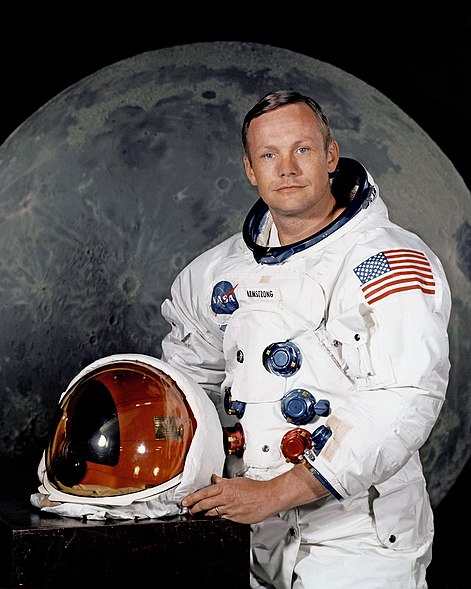 |
| Neil Armstrong, 1930-2012. |
Anyway, I watched the first Moon landing, although I didn't understand the black and gray shapes on the old black-and-white tube, but I saw it and I understood it later.
Neil Armstrong was an inspiration to me. He was the quintessential astronaut. I wish to mark his passing last weekend with special respect and admiration.
Neil Alden Armstrong (August 5, 1930 – August 25, 2012) was the first person to walk on the Moon, as well as an American astronaut, test pilot, aerospace engineer, university professor and United States Naval Aviator. Before becoming an astronaut, Armstrong was a United States Navy officer and served in the Korean War. After the war, he served as a test pilot at the National Advisory Committee for Aeronautics High-Speed Flight Station, now known as the Dryden Flight Research Center, where he logged over 900 flights. He graduated from Purdue University and completed graduate studies at the University of Southern California.
A participant in the U.S. Air Force's Man In Space Soonest and X-20 Dyna-Soar human spaceflight programs, Armstrong joined the NASA Astronaut Corps in 1962. His first spaceflight was the NASA Gemini 8 mission in 1966, for which he was the command pilot, becoming one of the first U.S. civilians in space. On this mission, he performed the first manned docking of two spacecraft with pilot David Scott.
Armstrong's second and last spaceflight was as mission commander of the Apollo 11 moon landing in July 1969. On this mission, Armstrong and Buzz Aldrin descended to the lunar surface and spent 2½ hours exploring, while Michael Collins remained in orbit in the Command Module. Armstrong was awarded the Presidential Medal of Freedom by President Richard Nixon along with Collins and Aldrin, the Congressional Space Medal of Honor by President Jimmy Carter in 1978, and the Congressional Gold Medal in 2009.
On August 25, 2012, Armstrong died in Cincinnati, Ohio,[1] at the age of 82 due to complications from blocked coronary arteries.
Source: Wikipedia.